In this issue where we consider alternative fuel types, we are talking to Rasih Boztepe, Vice Chairman of the Board of Reysaş Logistics, who also prefers natural gas in the vehicles in its fleet due to its economic and environmentalist nature.
"THERE MUST BE SOME EXEMPTIONS AND INCENTIVES SO THAT THE USE OF NATURAL GAS SHALL BE WIDE - SPREAD"
Conveying the benefits of natural gas use and the environmentalist practices of Reysaş Logistics, Boztepe said that; “There will be incentives for regulations that reduce carbon emissions in Europe and restrictions for those who increase it. There is a related carbon certification and it is encouraged by taxes and highway deductions. As much as we can reduce carbon emission, we should reduce it and implement practices related to it. Since the infrastructure has not been built for years, it could not spread much and it remained only in buses. There should be some exemptions and incentives to spread.”
Details of our interview;
“Reysaş Logistics was established in the 1990s and started with auto transportation. For a long time he dealt with only transportation activities, international shipping, internal shipments, domestic distribution and cold chain distribution. Reysaş is the first publicly traded logistics company. Later, it started to focus on warehouse investments and railway investments. With a storage area of ??over 2 million square meters, it is the largest company with a storage capacity in Turkey. We carry out warehouse investments through our company Reysaş GYO, which has been opened to the public. We do not use rented warehouses, we buy and operate our own warehouses or rent them to other companies for their operation. Apart from this, we are making serious investments in the railway. We do not only invest in equipment, but also in wagons, superstructures and stations. Railway is a very important form of transportation in terms of reducing carbon emissions. "
"We Strived to Focus on Railway Transportation and Try to Reduce the Highway as Much as Possible"
“Recently, we have focused on railway transportation and tried to reduce the road as much as possible. We continued to carry out international transportation only by rail. We carry out serious logistics activities domestically, and we do this with 800 self-owned vehicles. Apart from that, we can think of a vehicle park of nearly 2 thousand with subcontractors and cooperatives in the projects we carry out. "
"We Set Up Solar Energy Systems On Our Warehouses"
"Our goal is to produce electricity and meet the electricity production of the warehouses, and then to generate additional income by selling electricity to the grid. This is a very serious activity that reduces carbon emissions. As of today, we are at 15 MW, but with our projects this year, we will increase it to 21 MW. 30,000,000 annually. We will produce kWh of electricity. With this, 14 thousand 100 tons of carbon emissions will be reduced. There is a solar energy of 6,600 MW installed throughout Turkey; we can say that we have three per thousand of this. "
"As The Number Of Stations Increased, We Began To Increase The Number Of Dual Fuel Vehicles"
“We wanted to use dual fuel, natural gas and diesel, together in the tow trucks we used in 2007. In 2007, the technology required for this was not available in Turkey. We sent the tow truck to America and made it work with both LNG and diesel. Tranformation of these vehicles alone is not enough, this is a new market. While there were no stations in our country, we had transformed these vehicles around. Since we cannot supply natural gas from anywhere, we can use it with certain restrictions; We opted for double fuel for this. In dual fuel, the vehicle can continue with diesel when the natural gas is exhausted. As the number of stations increased, we started to increase the number of dual fuel vehicles. "
"Natural Gas Emits Much Less Carbon Compared To Petroleum Derivative Fuels"
“The station network is good for a start, but not enough right now. Looking at the consumption in the world, LNG and CNG are supplied together in China. These are called L-CNG stations. There are stations around 1300s. We are also in decimal numbers. Not only does it save economically; transformation also has a cost. There is a return on investment over a period of time, but these are practices that reduce carbon emissions. Natural gas emits much less carbon compared to petroleum-derived fuels. There are also lower numbers in NOX values ??and carbon monoxide. Austria and Switzerland are the most sensitive countries in this regard. They started with the Euro standard and standardized the transit hours accordingly. In green engines, they spend certain hours that do not comply with the Euro standard, and even impose restrictions that are not allowed to pass. Dual System and mono natural gas vehicles are systems that reduce carbon emissions compared to direct engines. For this reason, these types of vehicles are provided with highway toll discounts and tax reductions. Of course, this point has not been reached in our country yet. "
"You Do Not Have a Supply Problem in a Dual Fuel Vehicle"
“A dual-fuel vehicle is needed on a transition period, that is, when the station supply network is low. This is actually not a new situation. When we look at the usage rate, it has long been common in crowded countries such as Argentina, Brazil, Spain, India, Pakistan and China. During this transition period, you should not have a supply problem. For this, the station network must be widespread. In our country, it started late, was not encouraged, and nobody was involved in this project. The station side expected sufficient number of intermediaries for the investment and the users expected a sufficient number of station networks to be created. We also carry valuable loads in limited times, so we cannot have a supply problem. The replenishment problem should be solved first. You do not have a supply problem in a dual fuel vehicle. When you use natural gas, it provides both savings and a reduction in exhaust emission value. "
"When You Convert A Normal Vehicle To Dual Fuel, You Can Recover The Investment In One Year"
“There is one more problem in natural gas vehicles other than the supply problem. When we compare diesel and gasoline, diesel vehicles are more expensive, gasoline vehicles are less costly. Since the working principles of natural gas vehicles are the same, they should not exceed the prices of diesel vehicles. You pay a difference of 25-30 thousand euros for a natural gas-powered vehicle compared to a standard tractor. This is a very high number. Since natural gas vehicles are produced less, unit costs are high. It takes 3-4 years to pay off the difference of 30-35 thousand euros. When you convert a normal vehicle to dual fuel, you can regain the investment in one year and you do not have a supply problem. "
"It is Possible to Reduce 9 Million 265 Thousand Tons of Carbon Monoxide and Nitrous Oxide per Year"
“The number of stations is around 8-10 now and it is increasing day by day. While you can use a dual fuel vehicle on any route, you can use mono natural gas vehicles on certain routes. Since there is a volume problem with natural gas storage, it can be kept in special tanks in limited quantities in vehicles, and natural gas always runs out before in a dual fuel vehicle. Until the vehicle finds a station, it runs on diesel. It is very efficient and you cannot use it everywhere, but whether you use it less or less, it saves ten cents per kilometer today. Of course, 100 percent natural gas provides much more. In the meantime, it is necessary to take into account the diesel and natural gas prices. Because diesel prices were much higher, there was a decline. The gap between the price of natural gas and diesel is sometimes narrowed, but diesel can never be cheaper than natural gas. When we compare the oil reserves and natural gas in the world, natural gas reserves are more. A savings of ten kurus can be seen as a small figure. However, when you add around 700 thousand buses and minibuses to 5 million 200 thousand light and heavy commercial vehicles, there are approximately 5 million 900 thousand heavy and light commercial vehicles in Turkey. All of these vehicles can use natural gas. Such a car park covers 425 billion kilometers per year. With this ten-cent savings, it is possible to save 42 and a half billion lira annually to the Turkish economy and to reduce carbon monoxide and nitrous oxide to 9 million 265 thousand tons per year. The impact of the logistics and transportation sector on environmental pollution is at the level of 23 percent. If even 10 percent of this vehicle park is converted to natural gas vehicles, it will contribute 4.2 billion lira per year to the national economy. It is an important issue for both environmentalism and savings. "
"It Is Wrong To Expect To Solve All Transportation Works On The Road"
“We have 2-3 train shipments per week with our own wagons to the European line. We do not do land transport. We reduced the number of our vehicles from 2 thousand 200 to 800. We grew on railways and warehousing. It is necessary to look at all the links of the supply chain, warehousing is a part of it. It is wrong to expect to solve all the transport business on the roadway. In our country, 90 percent of the transportation is done by highway. This burden should be taken over the highway in terms of both cost, environment and risks posed by highway traffic. In order to increase the share of rail and maritime transport, these should become centers integrated with each other and on highways. If the modes of transport cannot be integrated with each other, transport piles up on the highway as we do. The private sector makes investments, but we cannot use our wagon and superstructure investments effectively. You are also connected to TCDD for the locomotive and its line. The infrastructures of these areas need to be developed and enlarged so that the load on the highway is dispersed. This will also reduce costs. The state should introduce incentive applications for infrastructure. Some applications are being made, but not enough. "
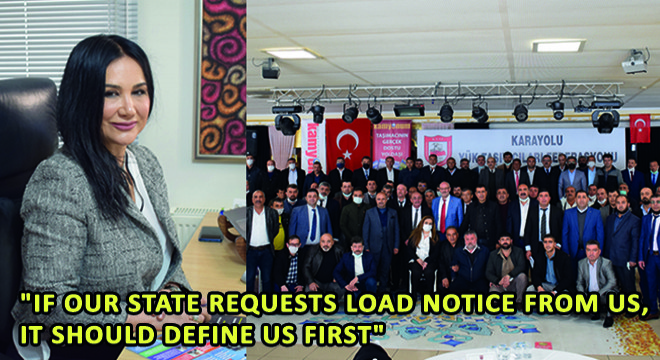
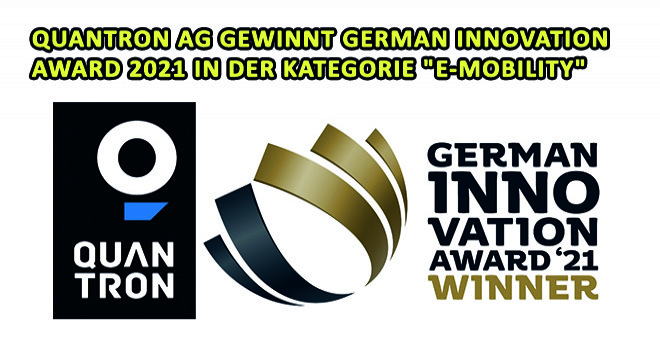
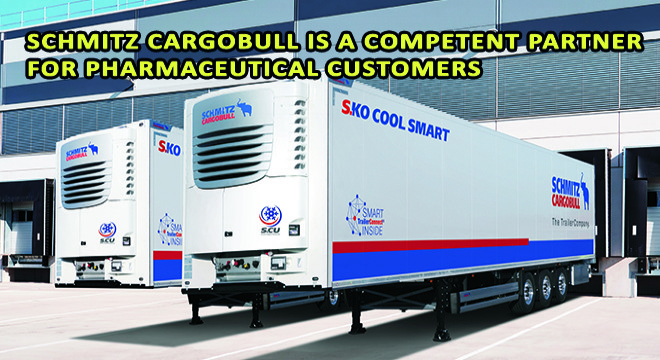
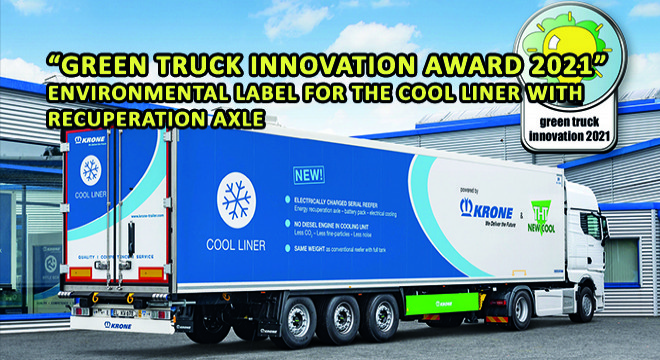
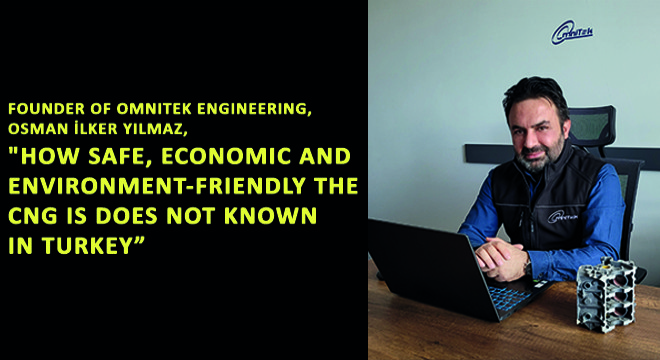








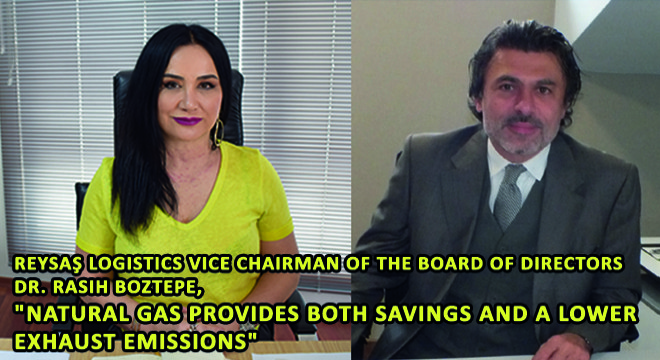
 Sayfa başına git
Sayfa başına git